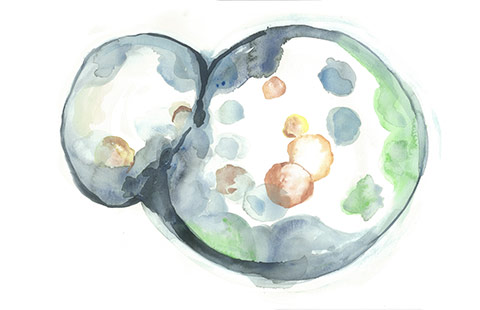Following up on my previous post about Advanced Maternal Age, I wanted to write about a topic that is closely related. DOR or Diminished Ovarian Reserve is definitely not a desired diagnosis if you’re looking to conceive. It’s important to understand, however, that this diagnosis is not the be-all & end-all of your fertility journey. The term “diminished” makes it sound quite bleak but it’s important to look at the big picture and remember that it takes just one egg and one sperm to create a healthy baby.
I frequently see women who have been given this diagnosis by their doctors or fertility specialists. They come to Yinstill for deeper insight, perspective, and understanding for what can be done to support and rejuvenate the remaining eggs they have and create a healthy environment in their body that would potentially house a fetus. I would recommend seeking naturopathic or alternative care if you have been given a diagnosis of DOR whether you’re wanting to try and conceive naturally or to help prepare your body for an upcoming IVF cycle.
As always, the earlier you start, the better because the more time we have to work with your body’s natural cycle. If you are able to see us for a couple of cycles before starting fertility medications, stimulations and hormones, this is much more beneficial as we get to observe the true nature of your cycle. We start by taking a thorough case history and discussing your health concerns. We then order pertinent lab tests. Some that you may have already done or heard about include day 3 FSH, LH, AMH, estradiol, and day 21 progesterone. We also look at your iron levels, thyroid function, and other hormone levels to help determine a more functional cause for the DOR, and narrow down treatment options. In addition to blood tests that you may do with your doctor or fertility specialist, I provide functional testing that maps out the cycle and establishes more specific hormonal imbalances if we feel like they might be present.
Next, we get into treatment. One of the most important treatment goals for us in this case will be to try and rejuvenate the eggs, and flood the reproductive organs with nutrients, vitamins, and antioxidants. Research is emerging on the role of the mitochondria (powerhouse of the cells) in egg quality and fertility. Supporting the mitochondria is important in slowing down the aging process of the eggs as well as influencing our genes in a positive way through the way we live and eat (epigenetics). Mature eggs in women with ovarian insufficiency have been found to contain fewer mitochondria than those with a normal ovarian profile. Treatment of the mitochondria involves supplementing with certain nutrients that aid energy production within the cell. This includes high doses of antioxidants like glutathione which are generally administered intravenously for superior absorption. Other nutrients to consider are CoQ10 and D-ribose. By supporting the mitochondria, we hope to rejuvenate or at least maintain good function of the oocytes.
So how does this all fit into the context of your lifestyle? Well, treatments are encouraged once per week, especially in the very beginning, this being more of a time-sensitive scenario. Patients are encouraged to come in for both IV treatments for egg quality as well as acupuncture for stress reduction. Secondary goals are hormonal balance, optimizing digestive function and sleep, and creating an overall healthy and open environment in the body that is more receptive to fertilization and pregnancy. This is done through a holistic approach that involves dietary and lifestyle recommendations, potential counselling, mindfulness education, and of course a wide array of the in-office treatments that we provide.
If you would like to learn more about how naturopathic medicine can help with a diagnosis of diminished ovarian reserve in your specific case, please book in for a free 15 minute phone consult and I would be happy to chat with you. Call 604-873-9355 or email office@yinstill.com today.
In health,
Dr. Shilo
